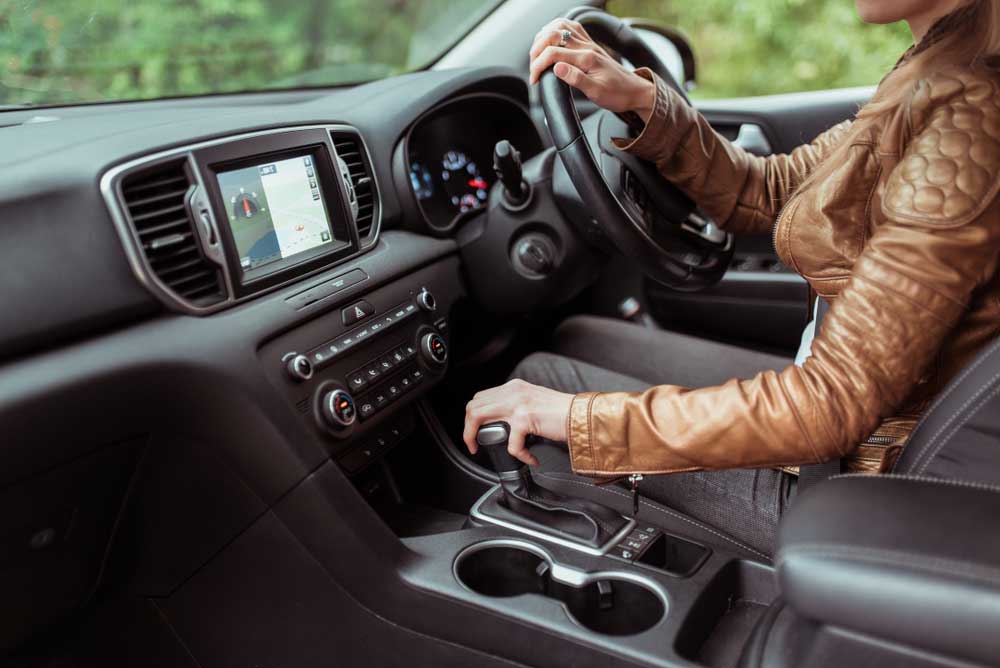Company vehicles are a significant investment for any business.
Whether your team drives sedans, hatchbacks or SUVs, how employees handle these assets directly affects your operational costs.
Even with standard company cars, certain driving behaviours can significantly impact your financial performance.
Aggressive Acceleration and Braking
One of the most common habits that costs businesses money is harsh acceleration followed by heavy braking.
This “hurry up and wait” driving style:
- Increases fuel consumption
- Accelerates wear on brake pads and rotors
- Puts additional strain on the engine and transmission
- Creates unnecessary stress for both driver and vehicle
Simply encouraging smoother driving techniques can reduce fuel costs and maintenance expenses across your fleet. When drivers adopt a more measured approach, the savings are immediate and significant.
Poor Parking Practices
Car park scrapes and dents might seem minor, but they add up quickly.
Common issues include:
- Door dings from tight spaces
- Reversing into poles or bollards
- Scraping vehicle sides against walls or columns
- Front bumper damage from misjudging parking stops
These incidents not only affect the appearance of your company vehicles but also impact their resale value. Training drivers in proper situational awareness and parking techniques helps preserve your vehicle assets and professional image.
Inadequate Vehicle Checks
Many drivers jump into a company vehicle without performing basic checks.
This oversight can lead to preventable expenses:
- Driving with underinflated tyres increases fuel consumption and causes premature tread wear
- Ignoring warning lights can turn minor issues into major repairs
- Failing to report small damages allows them to worsen over time
- Overlooking fluid levels can lead to engine or transmission damage
Creating a simple pre-drive checklist and fostering a culture where vehicle care is everyone’s responsibility can prevent many costly repairs.
Inefficient Route Planning
Poor route planning doesn’t just waste time…it wastes money:
- Unnecessary kilometres increase fuel costs and vehicle wear
- Inefficient routing means fewer client visits per day
- Getting caught in peak traffic burns fuel and reduces productivity
- Wrong turns and backtracking add stress and fatigue
Modern navigation tools make efficient routing easier than ever, but many drivers still rely on habit or memory.
Encouraging the use of proper planning tools helps optimise time and reduce unnecessary vehicle expenses.
Distracted Driving
Beyond the serious safety implications, distracted driving has significant financial impacts:
- Near-misses caused by inattention lead to sudden braking and swerving, increasing wear and tear
- Phone use while driving increases the likelihood of minor scrapes and major crashes
- Stress from constant connectivity affects driver focus and decision-making
Creating clear policies about phone use and distractive activities while driving protects both your people and your investment in company vehicles.
Building Better Habits
Changing these behaviours doesn’t require complicated programs. Effective approaches include:
Driver Awareness
Many drivers simply don’t realise how their habits affect vehicle costs and lifespan. Basic education about the financial impact of driving behaviours can create significant changes.
Skills Development
Even experienced drivers benefit from refresher training on fundamentals like proper parking techniques, vehicle positioning, and space management.
Clear Policies
Having straightforward, practical policies about vehicle care, mobile phone use, and driving expectations gives employees clear guidance.
Leading by Example
When management demonstrates good driving habits with company vehicles, it sets the tone for the entire organisation.
Measuring the Impact
The results of improved driving behaviour are measurable across several areas:
- Reduced fuel consumption
- Lower maintenance costs
- Fewer minor repairs
- Extended vehicle lifespan
- Higher resale values
- Improved road safety
Taking the Next Step
Improving how your team uses company vehicles doesn’t require a major overhaul of your operations.
Start with a simple assessment of current practices and identify the areas with the greatest potential for improvement.
Driver Safety Australia can help you evaluate your current situation and develop practical strategies for better vehicle use.
Our training programs are designed specifically for businesses like yours, focusing on the everyday vehicles your team drives.
Ready to reduce your vehicle-related expenses?
Contact Driver Safety Australia today to learn how our tailored training programs can help your team develop better driving habits that protect your bottom line.





